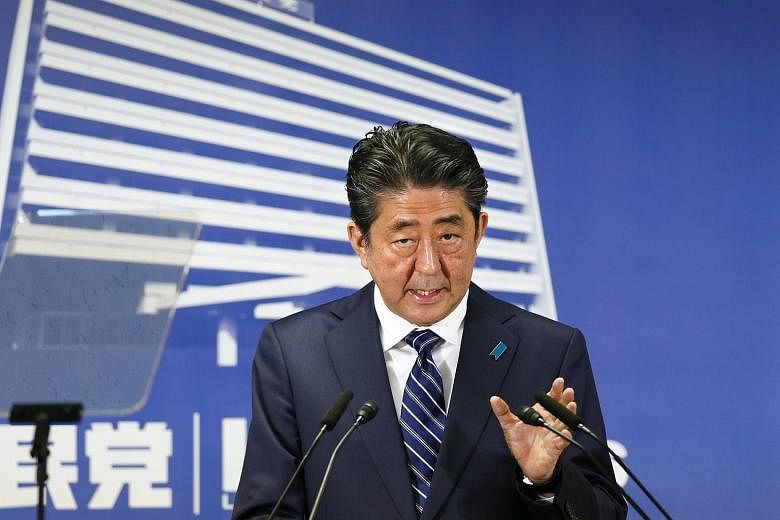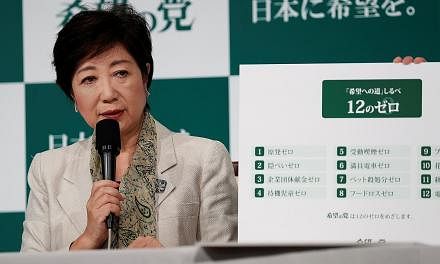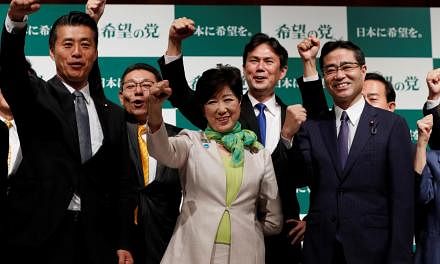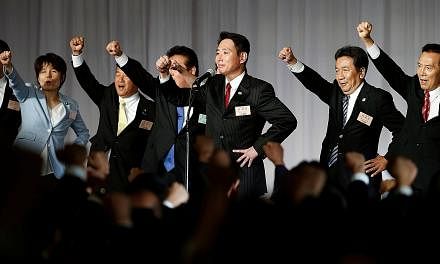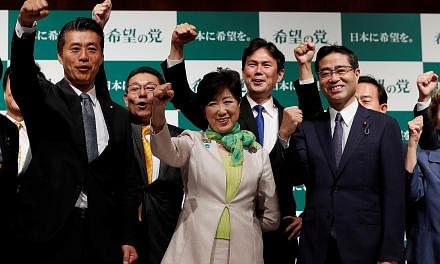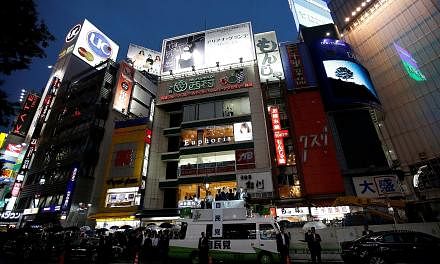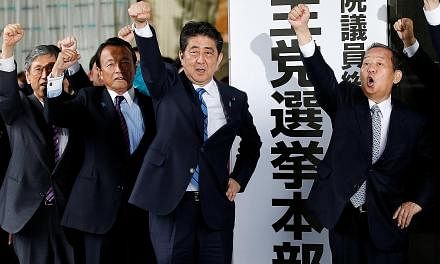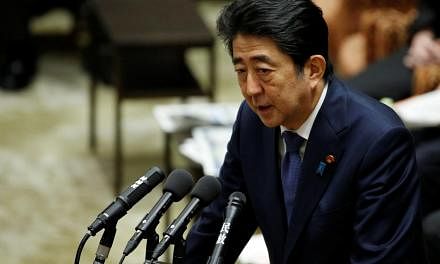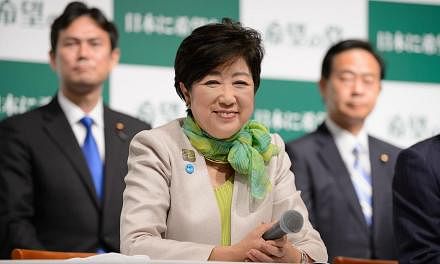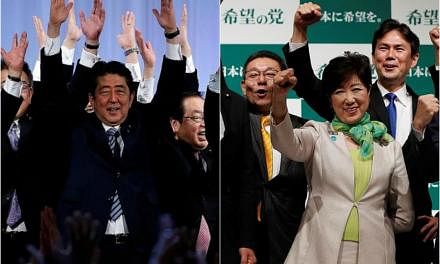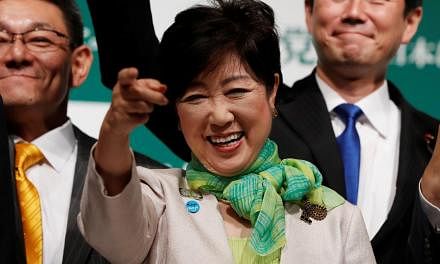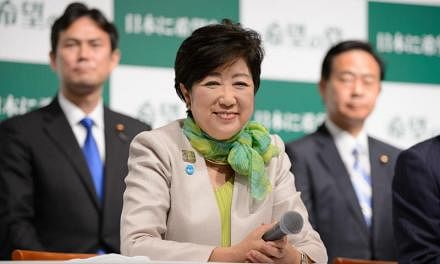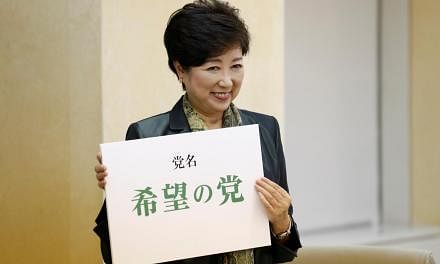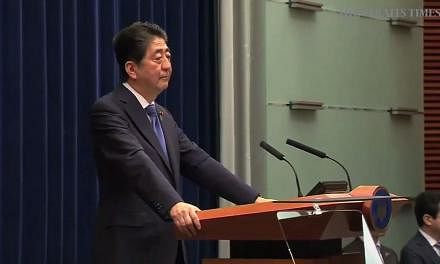TOKYO (REUTERS) - Japan's Prime Minister Shinzo Abe may have won a major election victory on Sunday (Oct 22), but half the people surveyed post-election by the Asahi newspaper don't want him to stay as prime minister.
It seems the election victory has boosted the approval rating for Abe's administration, but not him.
Public support rate for Abe's administration grew to 42 per cent in the survey, conducted between Oct. 23 and 24, up from 38 per cent in its previous survey in mid-Oct.
But 47 per cent of respondents don't want Abe to continue as prime minister, exceeding 37 per cent who want him to stay, said the survey published on Wednesday.
Abe's disapproval rating slipped to 39 per cent from 40 per cent, according to the Asahi's survey.
Abe is due to remain prime minister until September 2018 when his tenure as Liberal Democratic Party (LDP) leader ends and a new vote for LDP leader is held. Abe's LDP-led coalition won a combined 313 seats in Sunday's national election, keeping its two-thirds "super majority" in the 465-member lower house, local media said.
Several experts noted the ruling bloc's win was less a victory for the long-ruling LDP than a defeat for a divided opposition.
The Asahi's survey also showed 51 per cent of respondents said the number of seats the ruling bloc's won was "too many", while 32 per cent expressed the seat number was good.
And 54 per cent of respondents said they were concerned about Abe's policies, exceeding 29 per cent who said they have positive expectations, the Asahi said.
A Yomiuri newspaper survey on Wednesday showed the approval rating for Abe's administration was up at 52 per cent from 41 per cent in its previous survey early this month.
Asked reasons for the LDP's winning majority on its own, only six per cent said it was "high hopes for Abe", 10 per cent said "appreciation of ruling parties achievements" while 44 per cent cited fragmentation of opposition, the Yomiuri said.
